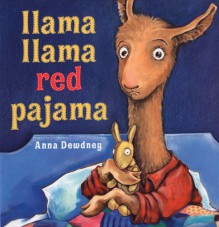
Herald Lloyd is an attorney whose life is falling apart -- he's drinking to excess regularly, his wife/business partner is continually threatening to leave, and he's committed a pretty obvious bit of malpractice while being uninsured -- which will pretty much ruin his practice and family. All of this can be traced back to his drinking, he's self-medicating to deal with recurring nightmares, flashbacks and stress related to his time serving in Vietnam (all of which are probably exacerbated by the drinking in a wonderful loop). We know that because he tells everyone that he's dealing with his symptoms just fine on his own in just about every conversation he has. Because what says "dealing with" better than constantly talking about how you're dealing with it?
The novel focuses on the actions that take place in 1988, where Lloyd deals with crisis around his malpractice and his efforts to dodge the repercussions of it. The characterization of everyone is shallow, the writing is stiff, the dialogue is cringe-worthy, the plot is predictable (yeah, it's based to some degree on actual events, but the presentation of the plot is predictable).
The book's saving grace (and, at times, the only thing that kept me reading) were the flashbacks to Lloyd's time in Vietnam. They (by my entirely unscientific reckoning) make up about sixty percentage of the book They were still too-frequently sloppy and self-indulgent with cringe-worthy dialogue. However, there was a life to them, something you could build a novel on (thankfully, because that's just what Hibbard was trying to do). Seriously, give me a novel based on this material alone, and my take will be much more encouraging. There's a great mix of types of material -- comic, dark comic, horror, slice of life, friendship, loyalty -- just about everything you could ask for when Lloyd thinks about (willingly or not) his friends, subordinates, commanders, antagonists from his years in Asia.
There's quite a lot of material featuring flashbacks to a week of R&R Lloyd spent with a prostitute. His wife, Thea, didn't enjoy him reliving that so often -- and who can blame her? -- and I didn't either. Calling them "gratuitous" feels like a tautology, honestly. I'm going to stop there because this threatens to take over this post, and no one wants that.
I'm going to give this a 3 Star rating because the Vietnam material was so strong (minus the stuff with the prostitute), the 1988 material on its own wouldn't even get 2 from me. A good editorial pass or two would've helped things tremendously -- I appreciate what it seems that Hibbard was going for here, but good intentions don't make good books. Good writing does, and there just wasn't much of that here.
<i><b>Disclaimer:</b> I received a copy of this book in exchange for my honest opinion.</i>


 Log in with Facebook
Log in with Facebook 









